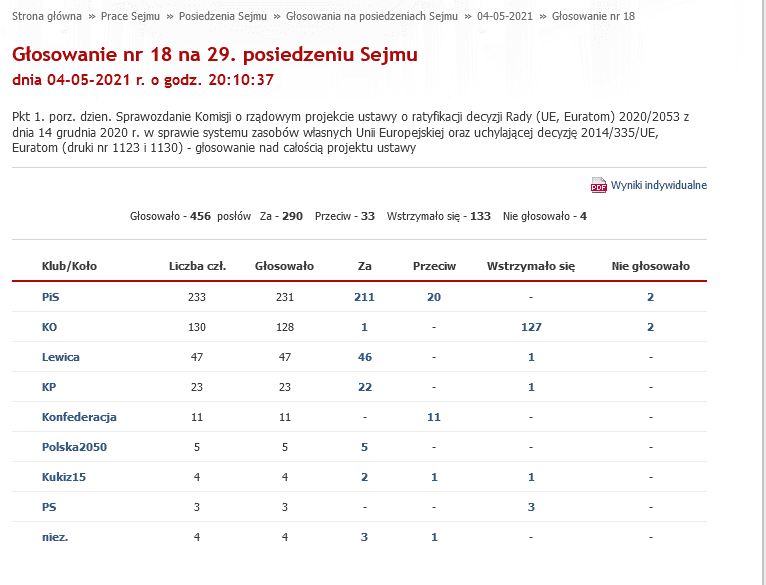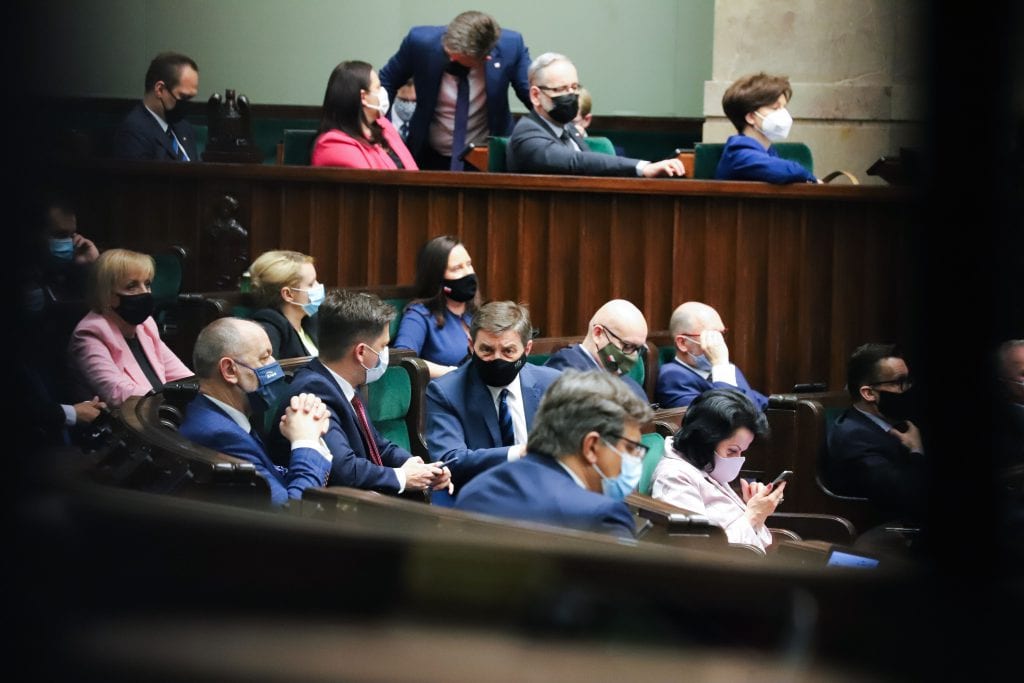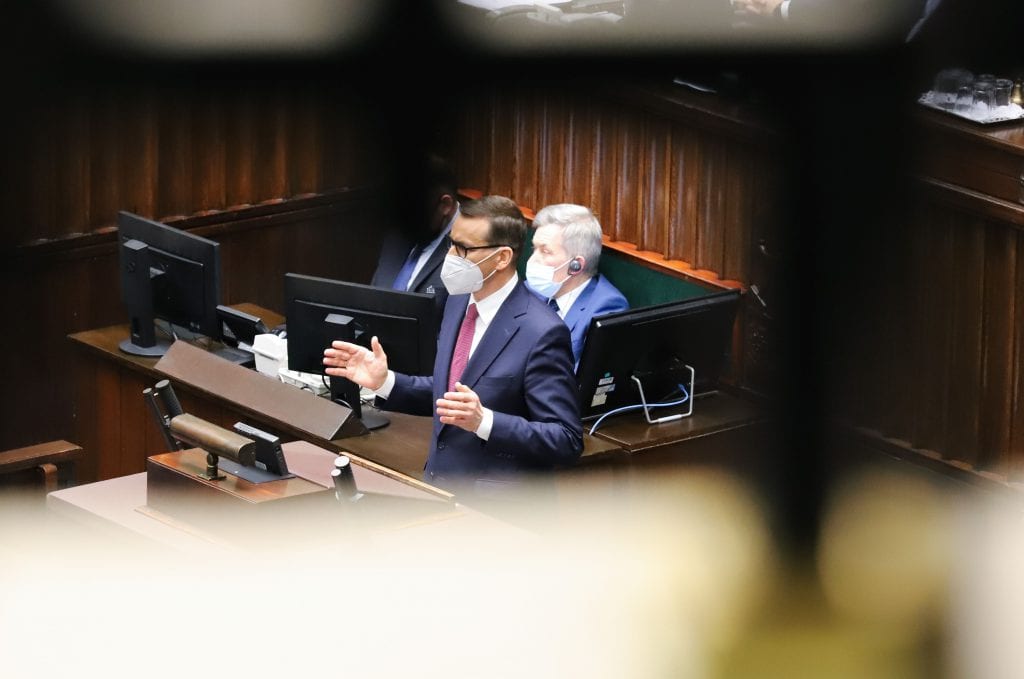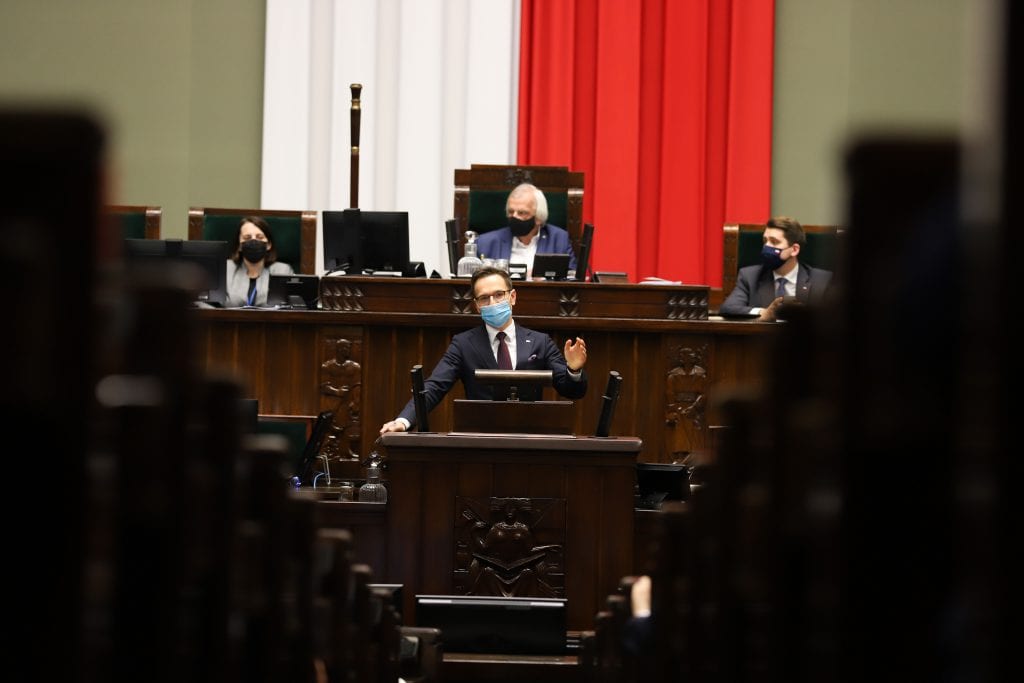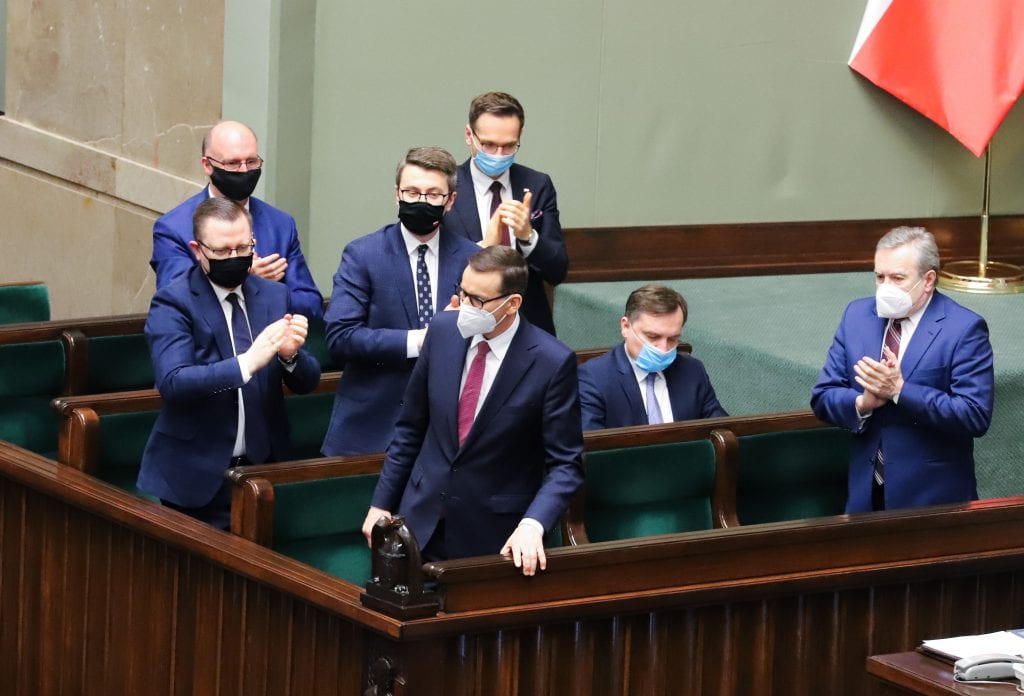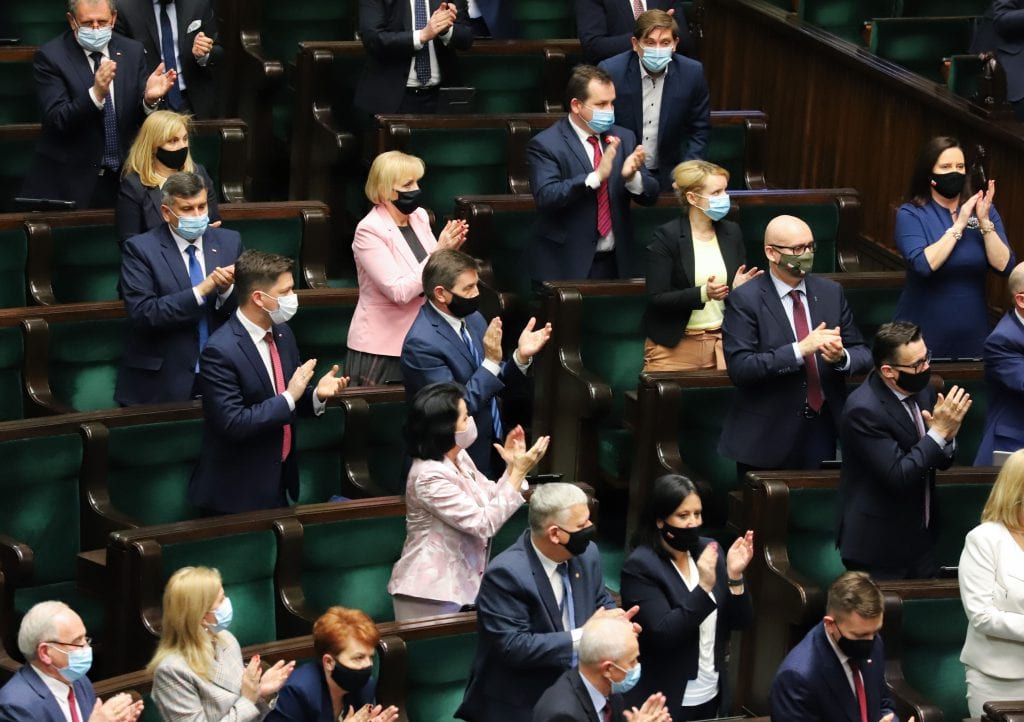The Sejm adopted the National Recovery Plan, from which Poland will receive approximately EUR 58 billion. In accordance with Article 4 of the said Regulation, the implementation of the NIP serves to promote economic, social and territorial cohesion by increasing resilience, crisis preparedness, adaptability and growth potential, to mitigate the social and economic impact of the crisis, in particular on women (thus fulfilling the objectives of the European Pillar of Social Rights), to support green transformation, to contribute to the achievement of the EU climate targets and to digital transformation. In this way, the interventions implemented in the NIP support the EU's objectives of increasing socio-economic convergence, restoring and promoting sustainable economic growth and integration of EU economies, as well as creating high-quality jobs and strategic autonomy for the Union and an open economy generating European added value.
From 26 February to 2 April, the KPO consultation ran. 35 days, 3 days of meetings with over 10,000 online participants, 5 hearings, 5,500 opinions submitted through the form on the website. On March 22, the five-day hearings for the Program also began, and on May 4, a joint meeting of the public finance committee and foreign affairs committee held the first reading of the draft. Public consultations and public hearings significantly influenced the final document. According to Article 3 of the Regulation, the NIP focuses its activities on six European pillars of crisis response and resilience building: 1) green transformation, 2) digital transformation, 3) smart, sustainable and inclusive growth, 4) social and territorial cohesion, 5) health care and economic, social and institutional resilience, 6) policies for the next generation, such as education and skills. The NIP interventions complement and extend the ad hoc and anti-recession measures taken so far by the Polish government and local governments in favor of sectors and entrepreneurs. Since early 2020, rapid, ad hoc solutions have been implemented in Poland, as elsewhere, to protect citizens, the economy, and the entire public life system from the effects of the COVID-19 pandemic. The financial intervention packages initiated by the government (successive iterations of the Anti-Crisis Shield, Financial Shield of the Polish Development Fund, Industry Shield, and assistance provided by Bank Gospodarstwa Krajowego and the Industrial Development Agency) with a total planned value of over PLN 312 billion, as well as legislative actions, have become instruments of quick and direct response of the State and provision of assistance to affected businesses and sectors (including in particular the health sector) in order to counteract the economic and social effects of the pandemic, primarily related to the introduced lockdowns.
These activities were also supported by funds from the European Union - in the framework of the operational programs of the cohesion policy for 2014-2020, so far (data as of 26.02.2021) for activities aimed at mitigating the effects of the pandemic, funds in the amount of about PLN 15 billion were allocated (from national operational programs - PLN 8.5 billion, from ROP about PLN 6.5 billion) - this is the so-called Fund Anti-Virus Package supplementing the Anti-Crisis Shield prepared by the government.
Source: KPRM
photo, text MO
